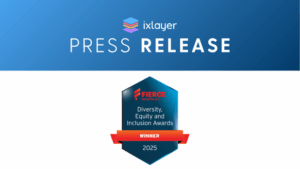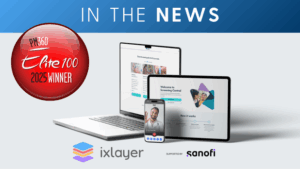We surveyed a group of pharmaceutical marketing executives, and over 50% are exploring or preparing a direct-to-patient (DTP) platform, á la LillyDirect and PfizerForAll. Launching successful DTP strategies is one of the most significant innovations the biopharma industry is currently undertaking to enhance access and engagement and help connect patients with treatment. Pharma companies face a critical decision here: Build their own DTP platform through internal efforts and multiple vendor contracts or buy a more turnkey solution. The decision is nuanced, but in today’s rapidly evolving market, the advantages of buying a configurable, compliant solution far outweigh the challenges of building from scratch or managing multiple vendors.
Here’s why buying a unified DTP solution is the smarter choice.
1. Faster Implementation and Time to Market
In the fast-paced world of pharma marketing, time is of the essence. Building a DTP solution in-house requires significant development time, testing, and regulatory approval—all while the market continues to shift. A unified solution with a pre-built infrastructure that is completely configurable to meet specific brand needs, by contrast, allows pharmaceutical companies to hit the ground running with a proven platform.
Unified providers already offer pre-built, proven, customizable features designed to meet regulatory requirements, streamline patient engagement, and optimize data integration. ixlayer recently implemented a DTP program for one of our partners in 8 weeks. This kind of experience and quick turnaround enables pharma companies to bring their DTP initiatives to market faster, giving them a competitive edge in an increasingly crowded space.
2. Comprehensive, End-to-End Solutions
One of the most significant benefits of purchasing a unified solution is the all-in-one nature of the platform. These solutions are built to handle every aspect of the DTP journey, from patient onboarding and diagnostics to telehealth services for both PCP and specialty physicians complete with dedicated clinician training and onboarding as well as prescription fulfillment.
In contrast, building a solution internally or working with multiple vendors often results in a disjointed experience for both patients and the pharma organization. Pharma companies face the challenge of integrating different systems, leading to inefficiencies, communication breakdowns, and vast discrepancies in data collection, sharing, and management. Managing various partners to piece together a coherent platform can quickly become overwhelming.
With a turnkey solution, everything is integrated from the start, ensuring a seamless and consistent experience for both patients and internal teams. Unified platforms allow for customization and data control, without the overhead of building from scratch.
3. Cost-Effectiveness
The reality is, building and maintaining a proprietary DTP platform can be extraordinarily expensive. The costs of hiring and retaining specialized development teams, ensuring compliance with ever-changing regulations, and continuously updating the platform are significant.
Additionally, managing multiple vendors can drive up costs due to inconsistent pricing, service delays, and unexpected complexities in integrating disparate systems.
We discussed this recently with Jessica Greig, Head, Consumer Marketing Type 1 Diabetes Franchise at Sanofi, an expert in pharma marketing and technology, at Digital Pharma East 2024. “It takes a lot of time and energy to build your own platforms, and while I appreciate the passion, many many internal people are pulled in to build those projects. Companies need to ensure ROI is really there at the end of the day,” Greig said.
With a turnkey platform, pharma companies benefit from predictable costs, proven scalability, data control, and a solution that evolves with industry needs—all without the burden of in-house development expenses.
4. Regulatory Compliance and Security
Pharmaceutical companies are always navigating a complex regulatory landscape. Turnkey DTP solutions are designed with compliance in mind, ensuring that the platform meets FDA and HIPAA requirements. They have already obtained important data safety certifications, helping to mitigate the risk inherent in a new program that collects and stores patient medical information. Additionally, they are continuously updated to keep pace with changes in regulatory standards.
We discussed compliance with Dave Guiga, Executive Director, Commercial Innovation at AstraZeneca, on a webinar about using at-home testing modalities in DTP programs. Guiga said, “These programs should not be seen as typical marketing initiatives carried out by a brand team. These programs are significantly different from marketing activities and should not be regarded as a way to simply feed into a customer relationship management (CRM) program. The focus is on making sure that everyone understands the significant importance of data security, especially given the presence of sensitive HIPAA-related information.”
In this same webinar, ixlayer’s Chief Product Officer, David Yu added that, “Those are the important things that our customers think about. Data privacy, data governance—these are the first things we bring up when we’re working with customers and trying to understand how we should be quarantining data, how we need to provide de-identified data and how we should even be exchanging data at all.”
Yu went on, “We are HITRUST and SoC2 compliant and we’ve invested a lot of time and energy to get there with our core product roadmap. We thought these were the right investments to make if we’re going to be working in this space.”
Building an in-house solution or managing multiple vendors often increases the risk of compliance gaps or data breaches, which can lead to costly fines and reputational damage. Turnkey solutions provide peace of mind with their built-in security and compliance measures, saving companies from the headaches of navigating these challenges independently.
By investing in a ready-made, comprehensive solution, pharma companies can focus on what matters most—delivering high-quality care directly to patients and achieving better outcomes.
About ixlayer
ixlayer has the only end-to-end, direct-to-patient platform built for biopharma and optimized for patient choice. We help biopharma companies connect with patients from testing to treatment with speed, transparency, control and impact.




